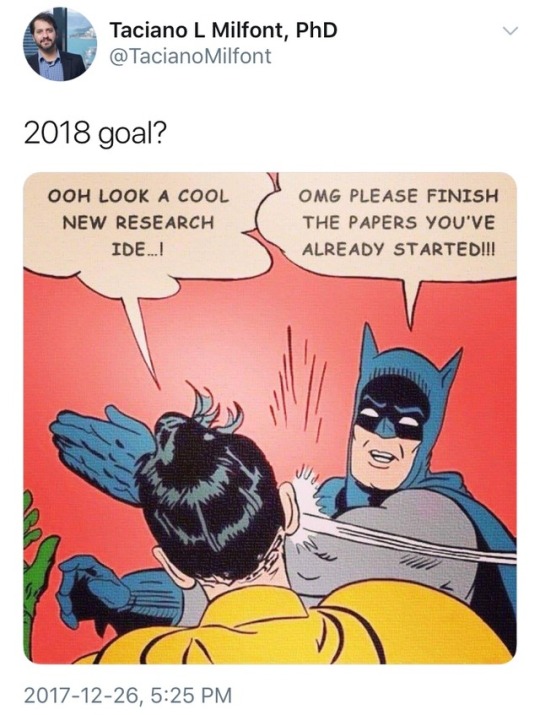Text
Depression: *starts to poke its head into 2018*
Me:

45K notes
·
View notes
Photo







A liquid mixture developed by Imperial College London and a company called Fabrican lets you spray clothes directly onto your body, using aerosol technology. After the spray dries, it creates a thin layer of fabric that can be peeled off, washed and reworn. It was made by British fashion designer Manel Torres. (Source)
I have more bizarre world posts here: http://sixpenceee.com/tagged/world
31K notes
·
View notes
Text
People need to realize that there’s a difference between straight people and Straight People™
905K notes
·
View notes
Photo

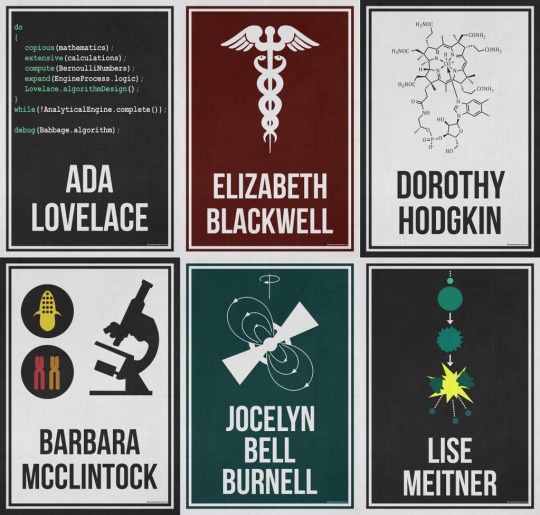

The complete ‘Women Who Changed Science - And The World" collection in honor of the 95th Women’s Equality Day.
Purchase Here!
114K notes
·
View notes
Photo
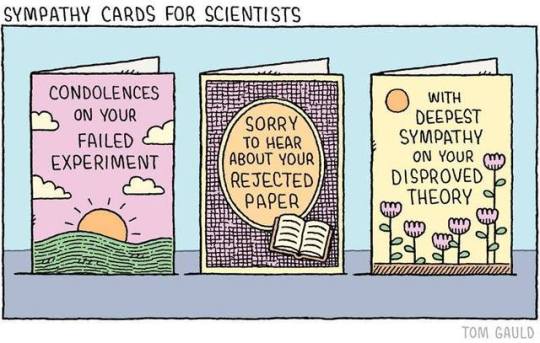
Sympathy Cards for Scientists
by Tom Gauld (https://www.tomgauld.com/)
3K notes
·
View notes
Photo



The complete ‘Women Who Changed Science - And The World" collection in honor of the 95th Women’s Equality Day.
Purchase Here!
114K notes
·
View notes
Photo
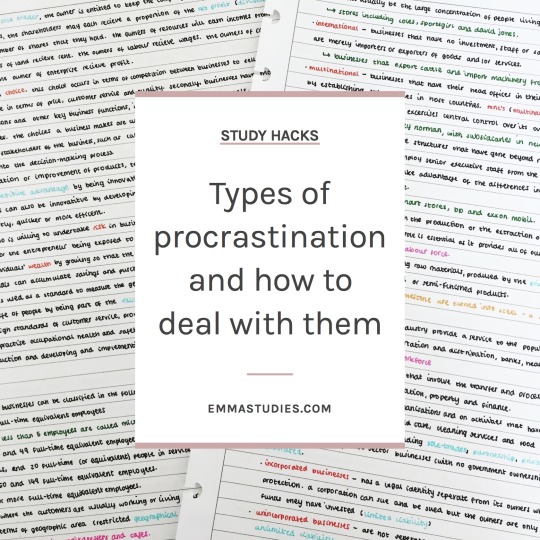
How to deal with procrastination
One of the biggest problems for students is procrastination! It takes different forms for everyone but ultimately it stops us all at some point. Since there are several reasons for procrastinating, I’ve put together the five main types and a few ideas on how to deal with it.
You’ve got poor work/productivity habits. You leave things until the last minute since you “work better under pressure”. You probably think you’ll do something after you’ve finished something else, and then never do. You get distracted whenever you’re trying to study and will sit waiting to feel motivated but it never comes. For this I’d suggest:
create a productivity inspiring workspace - find somewhere that you can set up a study space, whether it is an actual office or just a desk. Organise everything that you will need. I have a selection of pens and my few notebooks on the top so I can easily access them. Remove anything that might cause you to be distracted and doesn’t need to be in your immediate reach. If you’re got space, put up some motivational pictures. This could be my motivational printables, some quotes or your own pictures. Plants are also proven to boost productivity, so might be worth putting a small one nearby!
create an action list rather than to-dos - write down a few manageable tasks that you need to do and be specific on the steps you should take. Writing the actions they require will help you see what you should be doing to complete something, instead of just the overall task. If you’re able to break it down, you can take actionable steps rather than mentally having to think of each point.
focus on 20-30 minute periods - generally, we lose focus after a while so taking regular breaks can help give you chance to relax and refocus. Apps like Forest allow you to set a timer and will give you off your phone at the same time. Obviously, if you’re being productive, don’t suddenly cut that off because it is “time for a break”. Here are some other free alternatives.
remove distractions as best you can - I’m always distracted by social media so I will use Forest on my phone or time-lapse myself so I can’t use my phone. With my MacBook, I have two accounts. One for university and one for everything else. I am not logged into any social media on my uni account so I can’t just check it for a minute then end up wasting 20 minutes :’-)
find an accountability partner - pick someone who you can rely on to check on you regularly and see how your tasks are coming along. You can send them your to-do list and then every few hours you can update them with your progress. You won’t want to let them down. Alternatively, you can study with a friend! Tumblr/Instagram is basically my partner!
use the two-minute rule - if something takes less than two minutes, do it. Don’t make an excuse, just do it. Tasks that are longer you can either delegate or defer. Here is a simple visualisation of what I mean.
record your progress - doing a simple “don’t break the chain” in your planner is a great way to see how productive you’re being and therefore get you more motivated to keep it up! The ‘100 days of productivity’ challenge might be worth doing!
You’re feeling stressed and overwhelmed. Everything seems to be mounting up and nothing seems doable. You don’t know where or how to start. For this I’d suggest:
ask for help - if you’re feeling like this, it is likely you need some help in some form or another. See if a family member, friend, classmate or teacher (or Google) can help or give you a starting point. Emailing your teacher is a great option if you’re a little nervous about speaking to them in person. Plus you won’t forget what they told you because you’ll have a response.
remind yourself that getting started is the first step - you don’t need to finish a task in a matter of minutes. Start doing something small. Maybe organise what you need, highlight the important bits of your assessment, or draft an essay plan. The secret to getting ahead is getting started!
divide and conquer - figure out what is the overall task that you need to do and split it into manageable parts. For instance, with an essay, the aim is to write it! Divide it into planning out what you want to write, any references you need, summarising a final draft and then writing each paragraph. By dividing bigger tasks into actionable parts you can reduce the obstacles and get through each part in a more timely manner.
reward yourself - create a system to celebrate completing a selection of tasks. By rewarding your progress you’ll build an incentive to work and reinforce productivity (great for your self-discipline!).
learn to forgive yourself - if you have an off day, that is okay! When the stress of your education is getting too much, it is necessary to have time out. Remember to come back to it later and try again.
don’t over schedule - if you’re feeling pressure from the amount of work and then the added pressure of trying to stick to a time limit, you’re just going to go crazy. Set yourself flexible times to get something done instead of being heavily structured. Give yourself time for a break and the ability to change tasks.
stick with one task - it can be so tempting to multitask but try not to. Try to keep the focus on the what you’re doing until it is done. If you struggle with that, you could write down anything useful that you randomly think about for another task, use a break-time to think about that other task or alternate between subjects/tasks every few hours.
You’re a perfectionist. You either don’t want to start something out of fear you won’t get it right or you can get stuck on the small details. There is a pressure to achieve the unachievable. For this I’d suggest:
focus on getting started, instead of finishing - it is easy to get overwhelmed thinking about what something is supposed to be like finished if you’re a perfectionist. Take things one step at a time. It’s also useful to remember the sooner you start, the more time you’ll have to perfect it at the end!
make drafts - if you’re overwhelmed, take half an hour to map out your plan of attack. Drafts can take many forms: summaries, scaffolds/outlines, essay plans, post-it notes, etc. I find it much easier to get on with work if I have a bit of a plan.
remember that your perfectionist tendencies aren’t actually improving your work or productivity but hindering you - you’re continually setting yourself unrealistic objects and (like me) probably feel let down by yourself if you don’t reach them. Be realistic and focus on getting it done!
accept mistakes - you’ve written something wrong, don’t panic! Cross it out with a single line and move on. Things happen and you have to accept it. You can’t rip up the page every time you do something wrong, even if it is so tempting.
put things in perspective - is what you’re beating yourself up about right now going to mean anything in a week, a month, a year? Be honest if it isn’t, is it really worth putting unnecessary pressure on yourself.
praise yourself through the process - try not to criticise yourself but recognise your progress.
don’t compare yourself - this is very hard not to do but remember we are all different. Just because “you’re not as good” or don’t understand something as easily as others, it doesn’t mean you’re any less! Everyone was a beginner once and we all learn at different paces. Work to your strengths!
You want to do something else. You find whatever you’re doing boring. You want it to be over with but don’t want to get started. The ultimate catch 22, right? For this I’d suggest:
remember that putting it off isn’t going to make it go away - if you leave it too long you’ll end up getting more stressed about it. Best to get it over with.
make a plan from the get-go - once you know something is coming up (e.g. a test, an assessment, etc) make notes on it! That could be questions, annotations, potential topics, citations, etc. By making the effort to spend time reading through, you’ll save your future self some stress. Especially if it’s a topic you have forgotten. That way your notes act as a reminder so you can get started.
set a finish time with a reward - tell yourself that if you finish something by a certain time and then you can do something else. Use your self-discipline to not go back on this. Set a realistic time and try to get it complete before. If you can think that you’re doing something fun once it is completed, you’ll be more motivated to get it done.
make a structure - for note-taking, it can be overwhelming looking at a textbook and thinking what you’re going to write out. Make a note-taking layout/colour code that works for you and that subject. Mine is here - it just gives me an idea of how I’d lay everything instead of going in with no action plan.
try to make it fun - this could be using YouTube to learn or starting a study group. Use different methods for memorising information such as flashcards, mindmaps or study guides (like question/answer).
make the effort to refocus - if you’re finding something boring and you’re unfocused, walk away for 5 minutes, get a drink and come back. If you’re really struggling, change topics for a while. Find a point where you can finish and start doing something else that is productive.
listen to some music - generally, music without lyrics are best for focusing. Spotify has a great playlist for studying called ‘focus’. However, I find my regular music good for getting me a little more motivated and awake. I also like writing essays to music because I weirdly sort of type in the same rhythm. Funny study hack I’ve found that works for me haha!
write your thoughts down - Another thing I’ve been trying is externalising my thoughts. If I get distracted by something or have a “gosh, I need to remember that” moment, I will write it down. By getting it out my brain and onto a bit of paper, I no longer have to think about it and can continue.
You have no motivation. Often we feel that motivation is the only thing you need to get on with something, but this isn’t totally true. You need a mix of motivation and discipline. As the saying goes: “motivation may get you started, but discipline keeps you going”. To build your motivation, I’d suggest:
have a mass organise - usually when I’m feeling unmotivated, I’ll clear out my desk and sort out my computer. This involves throwing out stationery that doesn’t work or scrap paper. I usually make piles of spare stationery and will re-organise my desk drawers. For my computer, I will pull out all my files to my desktop then start working through them. I’ll delete duplicates, rename files properly, and put them in the right place.
find some new stationery - weirdly buying stationery is one of those things that instantly makes you want to be productive. Head to the shops and spend a little something on a new pen, highlighter or notebook!
film yourself - studying generally doesn’t give us any instant gratification which can make it feel like a drag. By filming yourself working you can get a little video at the end which shows your progress. I love watching time-lapses of myself because you see all the work you did super quickly. It also means I’m not touching my phone!
set yourself some goals - write down a few things you want to achieve, in the short or long term. Put it somewhere that you’ll be reminded about it! By externalising your goals, you’re more likely to make the effort to achieve it.
check/make a studygram and studyblr - this is one of most motivating this I’ve done. Having social media dedicated to studying has helped not only improve my work ethic but my whole attitude towards education. Getting involved in the community is a great motivator. Here is a post on how to set up a studyblr.
I hope this post gives you just a few ideas on how to tackle procrastination! If you’ve got any tips you’d like to share, please message me! x
Other posts | Printables | Instagram | Youtube | Pinterest
31K notes
·
View notes
Photo

This is the ugly truth
3 notes
·
View notes
Text
Note taking for medical students on OneNote!
I’ve been asked a few times how I make my lecture notes so I thought I’d make a post about it.
First thing’s first: I use OneNote on the surface Pro! I absolutely love it - it is great for organisation - and I organise subjects into sections like this:

On the first page of each section, I have a list of learning objectives for that module, and then I make a page for each learning objective, and it ends up looking a bit like this (here is an example from my Genitourinary section) I’ve highlighted and arrowed some examples
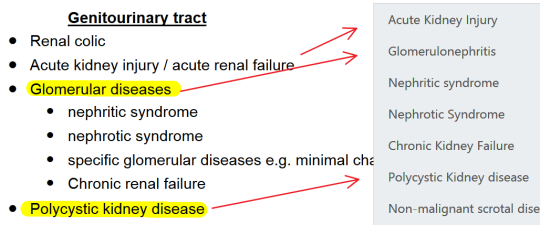
So - for each lecture I have a template which covers most of the core aspects of a disease (aetiology, patho, epidemiology, treatment etc) and as the lecturer talks I make notes in the relevant paragraphs - I did this because my lecture notes used to just look like bodies of nonsensical text which I had to spend time organising and prioritising - my template for lecture notes looks like this:
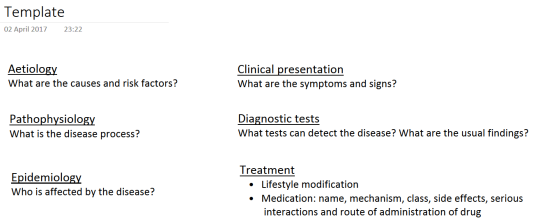
And then when I get home, usually a few weeks after the lecture (It’s better to do it straight away but I struggle with doing that, so i normally do it in my revision) I tidy up all the notes, add colours and pictures so that the finished product looks like this:
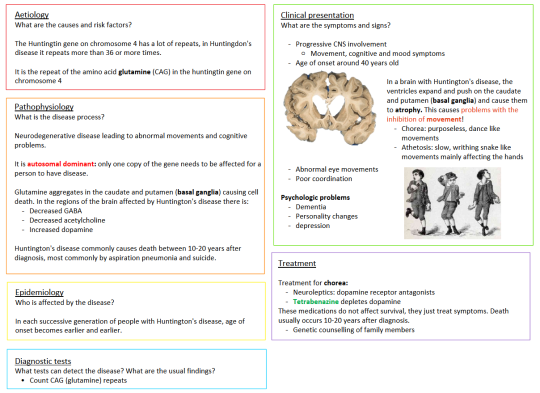
Those are my Huntington’s disease notes that I made today as an example.
So that’s how I make notes and it has helped me so, so so much with organising this year - if you have OneNote try it out and see if it works for you :)
1K notes
·
View notes
Text

Hello Everyone,
I’m Brianna and this is my first ever masterpost! I have decided to show you how to use one note for a student, I’m a first-year psychology student and have found one note extremely useful.
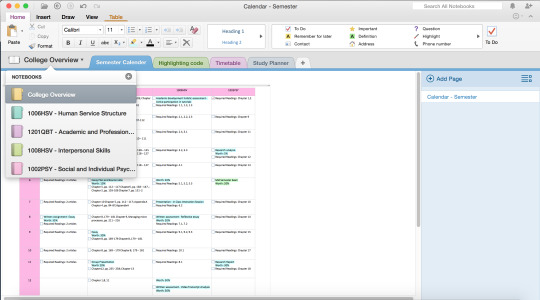
I have a notebook for each subject as well as an overview/planner. This enables me to be able to organise everything very effectively. Each notebook is colour coded, I use the same system in my bullet journal to distinguish subjects.

Then I have created a semester planner, with a tab for each subject. I include any readings, assignment and exams I have. When using one note there are tags, much similar to the bullet journal, for my planner in front of every task I have an ‘to do’ box, this helps me prioritise and understand on a large scale of what I have to do.

For the other sections of the College Overview, I have a highlighting code, which is very important for me because I often forget it, as well as my timetable and my study planner. If you would like me to discuss these more in-depth, please let me know!

In my class notebooks, I have five sections; Lectures, Tutorials, Workshops, Textbook Notes, and assignments. In all sections but the assignment one, I have a page for each week. In these pages I write all my class notes down, this makes it extremely easy for exams when I am revising!
As a bonus One Note automatically syncs with your Microsoft account, thus if your computer crashes and deletes everything, all your notes will be safe!

Thank you so much for reading my masterpost! if you have any questions about one note or anything else please feel free to message me! much love, bri xx
Check out my insta: https://www.instagram.com/bristudiespsych/ I follow back! ✨
1K notes
·
View notes
Photo

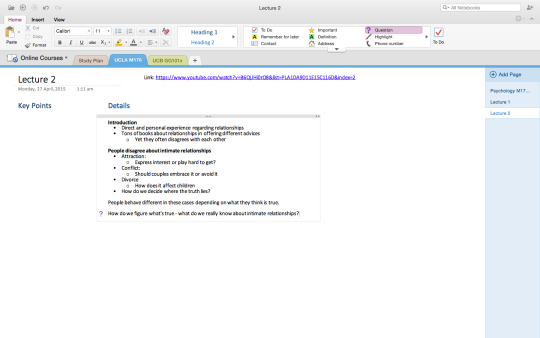

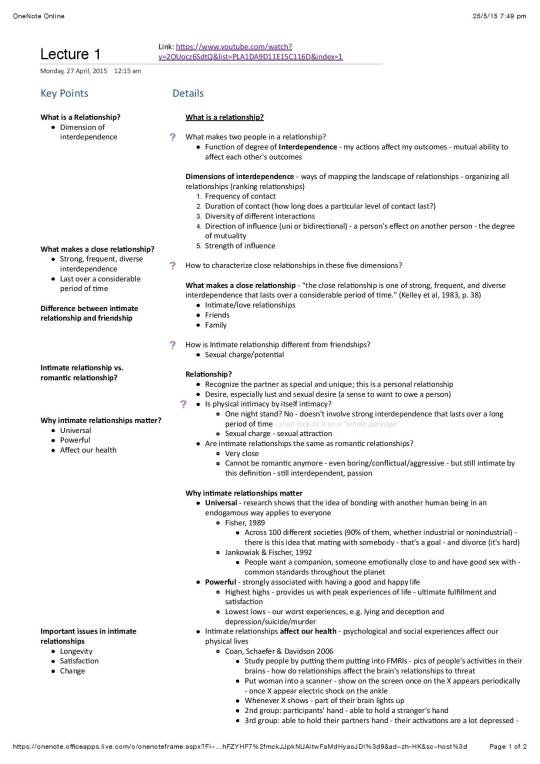
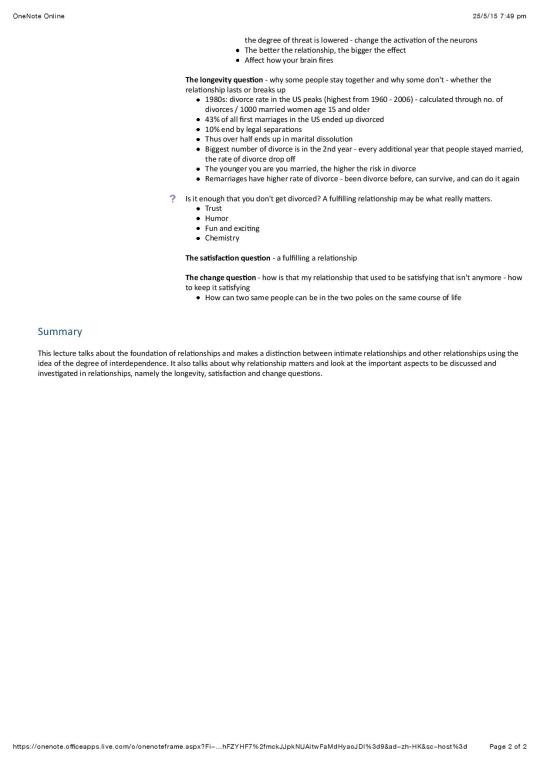
How to use Cornell note-taking method on OneNote - A tutorial on how to take class notes
Cornell note-taking method is really amazing, since it allows you to take clear notes and analyse it afterwards + can give you a brief idea on what the notes are about simply by looking at the key points. Of course, the last summary section can definitely help you to organise your ideas. All in all, it’s just a great motivation for you to go back on your notes after class.
This is often used by people who take notes by writing. Personally, I love taking notes using a laptop as it’s way faster + everything can be organised rather easily (especially with OneNote).
Tutorial on Cornell method
1. Course number as title for tabs; lecture no. as title for the page. I also insert the link of the class / any lecture materials provided here.
2. I type in key words and details (basically the two columns in Cornell method)
3. I format the two using “Heading 1″
4. Then i just take the lecture notes in the detail section using the outline method
- I also like to add in tags, like questions for any inspiring/thought-provoking questions posed my the lecturer, and important for key concepts (and to-do for coursework, if there’s any)
5. After class:
- I re-read the notes
- highlight anything i find important
- And input the key ideas in the left column for easy reference
- add in summary of the bottom of the page)
My highlighting system:
- Green: key words
- Yellow: ideas to note
- Orange: key points (for example like i will highlight the main categories of sth)
- Blue words: examples
Printing tip / Converting to pdf
If you want to print your notes, the onenote app on macbook usually do not format it well and cut the pages in a very weird way. Instead, you can print by accessing your notes on OneDrive (like through your internet browser). The last two pictures are how my notes for the first lecture turn out.
#9 || Link to my study tips series - i post once a week here! (strive-for-da-best)
7K notes
·
View notes


